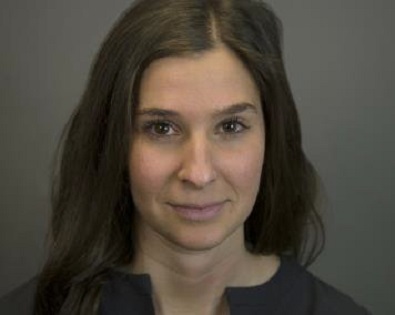National expert on human trafficking Carly Kalish. Photo courtesy skprevention.ca
Health professionals across the province gathered in Saskatoon this morning for a presentation on human trafficking.
Carly Kalish, a national expert on the issue, spoke about the many misconceptions people have with human trafficking and the sex trade it Canada.
Kalish is a family therapist in Toronto, who has spent most of her professional career helping individuals victimized by the sex trade and human trafficking.
The presentation was hosted by the Saskatchewan Prevention Institute and focused on several areas pertaining to domestic human trafficking. The majority of the presentation focused on the myths and misconceptions about human trafficking.
According to Kalish, human trafficking occurs in Canada more often than people think and it doesn’t happen the way it is presented in movies.
“Most often what we see in movies is totally opposite of how human trafficking plays out in Canada,” she says. “Yes, international human trafficking exists in Canada, but it is not the majority of what we see. The majority of what we see are people who are Canadian-born being trafficked in Canada. You can be from Saskatoon and be trafficked in Saskatoon.”
Another misconception that Kalish spoke on is that human trafficking most often comes from a stranger.
“Most often it is in fact not a stranger,” she says. “It can be someone you know very well, sometimes it can be family, but most often it’s someone you have a connector link in common, but there not a complete stranger.”
She says online connections and social media have become an avenue for predators over the past few years.
Kalish also touched on the idea that human trafficking does not require any movement.
“It doesn’t involve moving someone across a border,” she says.
According to Kalish, anyone who is either forced, coerced or tricked into the sex trade has in fact been a victim of human trafficking.
The presentation also touched on practices for working with sex workers and those caught in human trafficking, the importance of differentiating between sex work and human trafficking and the different stages of exploitation.
